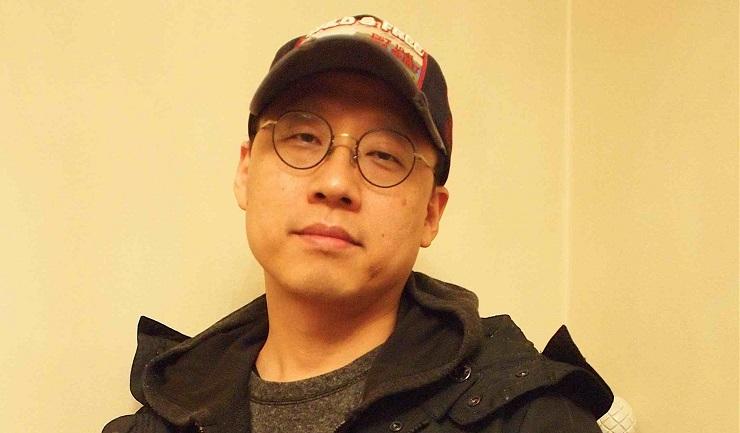ASIACALLING
Asian Films Bag Awards at Stockholm Film Festival
"Chinese films won awards at this year’s Stockholm International Film Festival. Now in its 27th year, this year’s theme: identity – cultural, religious and geographical – was a focal point. "

Chinese films won awards at this year’s Stockholm International Film Festival.
Now in its 27th year, this year’s theme: identity – cultural, religious and geographical – was a focal point. Besides those that won awards, the Asia section films were impressive – from edgy thrillers, relationship dramas, to biting social realism.
Ric Wasserman has the story on a few well worth looking out for.
Transcript -
A tunnel collapses on a solitary driver, Soo, trapping him under tons of stone. Seong Hun Kim’s taut drama is finely balanced between the fight for Soo to survive after weeks underground, and the Korean government that wants to stop the rescue – it’s become way to costly to save just one man.
Based on the novel by So Jae-Won, Seong Hun-Kim turns it into a disaster movie, but with humor, says director Seong Hun Kim.
“If you have to swallow a bitter medicine, like a disaster movie, it’s best to enclose the medicine in a capsule, to make it a bit easier. That’s why I work with humor.”
Seong uses satire and lampooning to characterize Korean officials’ cold, calculating attitude.
While the press seethes like sharks outside the tunnel, a bond develops through a dying cellphone between the victim and chief engineer, who risks his career, and life, to save him.
“I reflect my hopes on the rescuer – that maybe his passion to identify with the trapped man, in spite of the personal risk, could be a metaphor for hope and change in society,” Seong explains.
Indian director Anu Menon and her new feature Waiting is about expectation and devotion. Shiv, played by Naseruddin Shah spends his days in a hospital with his wife whose been in a coma for months – talking to her – and hoping against hope.
![]()
Shiv befriends Tara, her husband is in a coma as well, and the two share their anxieties and dreams.
Director Anu Menon was in advertising and realized she needed to bring forth a new identity – as a storyteller.
“I did have that epiphany moment where I felt, I can’t do this forever,” recalls Menon.
“But I didn’t know if I could be a filmmaker or I had it in me. So I joined film school in London which gave me the space and find my identity as a filmmaker, as a person, and just hone my skills,” Menon reflected.
Waiting forces us, unflinchingly, to ponder who we are, and what common threads bind us together in grief.
An unexpected, but well-deserving winner of the bronze horse for both best director and manuscript went to Jonny Ma for his film, Old Stone.
The debuting Chinese-Canadian, Ma’s provocative feature lays bare the Kafka-esque system of insurance and criminal responsibility in China.
We follow taxi driver Shi, caught up in an economic nightmare after hitting a motorcyclist.
He drives the victim to hospital – a big mistake, say both friends, lawyers, and his wife. If you run over someone with your car in China, best you back over them until they’re dead. If they die, you’ll just pay a small fine. If they survive, you’ll end up paying a huge sum in hospital and rehab costs for years to come.
Old Stone is a cruel and painful commentary on reality today in China.
As is Yao Tian’s masterful forced migration drama 500M800M.
The Three gorges dam project, the largest in the world meant over 1 million people had to be relocated. The story in Yao Tian’s film centers on a family and pregnant Hongfen who, when living above the 500 meter sea level mark was permitted to have two children.
She’s now ineligible because since relocating below the 500 meter mark – the policy at that level only allows one child. A social and economic dilemma ensues.
![]()
“I was born in the ‘80s during the family planning policy period and me and my family and friends were affected. Some family became bankrupt or homeless when trying to have their second child,” says Yao Tian.
“It touched me deeply,” concluded Yao Tian.
The one-child policy in force for 35 years, resulting in as many as 400 million unborn babies. The policy was rescinded this January.
Yao Tian says the film had to be made:
“My key point with the film is to express the loss of a whole generation People are the roots of the world but we lost our identity through this policy,” Yao Tian told me.
Now Yao Tian must fight his own battle – to get his film screened in China where he says
it needs to be seen and discussed.
- Stockholm International Film Festival
- Ric Wasserman
- So Jae-Won
- Seong Hun-Kim
- Anu Menon
- Yao Tian
Komentar (0)
KBR percaya pembaca situs ini adalah orang-orang yang cerdas dan terpelajar. Karena itu mari kita gunakan kata-kata yang santun di dalam kolom komentar ini. Kalimat yang sopan, menjauhi prasangka SARA (suku, agama, ras dan antargolongan), pasti akan lebih didengar. Yuk, kita praktikkan!